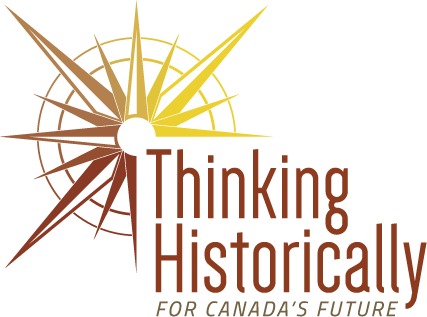The Day After: Living Better in Troubled Times
by Nyein Mya, Ph.D. Candidate, University of Ottawa
The review and exchange that took place as part of Day 1’s sessions brings to the forefront what the authors of the edited collection, History Education in Troubled Times, sought amidst the challenges of history education: joy is knowledge, conversation is learning. What we had surmised were the larger themes of the collection—troubled times require reflection on ways of being, truthfulness, hopefulness, and reflexivity—was lived and embodied on the second day of the workshop.

Valley of the Birdtail (Photo by Nyein Mya).
As the OHASSTA keynote speakers and authors of the Valley of the Birdtail, Andrew Stobo Sniderman and Douglas Sanderson (Amo Binashii), remind us, curriculum has a long history as a tool of oppression and suppression. And schools have been and continue to be a domineering force in the maintenance of this assimilation and erasure. But this need not forestall or paralyze learning and living differently. While remembering and re/un/learning the history of Canada’s violent legacy is crucial in this march towards our intertwined liberation, we must remember the sentiments of what one of the presenters expressed: we should begin with stories and identities of our excellence as individuals and communities.
In the discussions between the History Education in Troubled Times researchers and the K-12 teachers, a momentary tension was felt based on the assumption that the former would facilitate discussions and the latter would follow. But rather, it was the teachers who pondered and shared, storied and investigated. The divisions between researchers and teachers were blurred when we sat in a circle, sharing experiences and anecdotes within and beyond the classroom. In other words, the differences we see between researchers and educators are in degrees, when the differences should be in kind, where our goals are not to be divided but integrated and aligned.
This brings to life the statement that history was and is always about living, and how we might live better with others. The interactions and engagements of Day 2 demonstrate how the edited collection speaks to the troubled, dangerous, and difficult times we are living in now and beckons to those on the front lines. This is not to say that researchers are not practicing or experienced teachers themselves, nor that teachers are not scholars and experts, but to bring to attention how we are all necessary in this journey towards living multiple and unique curricular landscape(s) of our classrooms and beyond. In being amidst those on the front lines of teaching and learning, I bear witness to the critical hope we traced in our book chapters to come to be embodied in the teachings and learnings of Day 2. On this ending note, this is a reminder that many communities have always been and continue to live in tumultuous times—from coast to coast to coast, from the waters to the land to the air. But it is also in the coming together of those who live differently, where I extend this piece of comfort, that the future—our children—are in the good hands of teachers.

The Day After, McMaster University (Photo by Nyein Mya).
Nyein Mya (she/her) is a Ph.D. Candidate and Part-time Professor at the University of Ottawa’s Faculty of Education. She is a first-generation immigrant settler with family living on Treaty 6 territory. Working through and within a citizenship-as-treaty framework, her doctoral research explores what an anticolonial citizenship education could look like for teachers and newcomer students in the LINC ESL program. Her research interests include reimagining Canadian citizenship, examining settlement and integration experiences, and exploring immigrant and refugee identities in English language learning classrooms.
